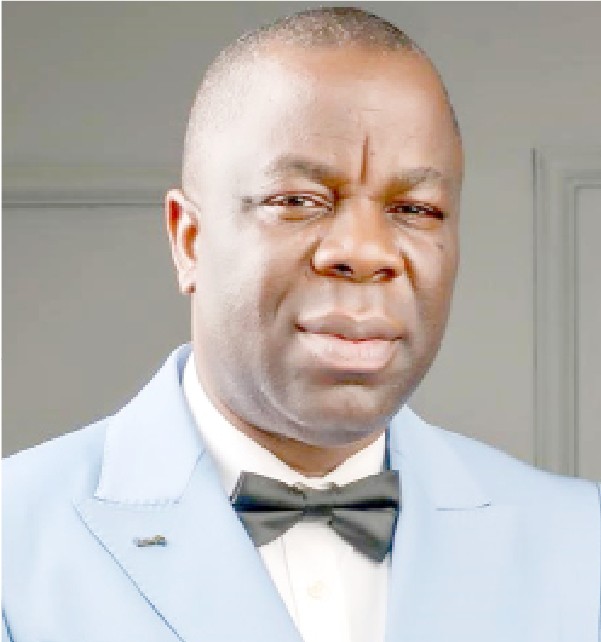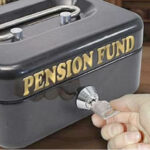Engr Ademola Isaac Agoro is the Acting President, Meter Manufacturers and Assemblers Association of Nigeria (MMAAN). In this interview with Daily Trust, he says the World Bank’s meter project is bad for Nigeria and calls for ending the regulation of meter prices to make them available to electricity consumers.
Your association has expressed serious opposition to the Phase 2 of the National Mass Metering scheme sponsored by the World Bank. What is the update on your challenge to it?
We showed our displeasure on the conditions of the contract, especially on the Import Duty Exemption Certification (IDEC) attached to it. Our anger stems from the fact that some of our members that import Completely Knocked Down (CKD) meters pay about 45 per cent to the government on duty. We have those that pay 10 per cent on Semi-Knocked Down (SKD). Today, if you are bringing meter into Nigeria, you have to pay 35 per cent duty with a levy. But if you are saying you want to give a World Bank procurement and want people to bring in fully built meters without any levy or duty, the implication is that local manufacturers will lose out.
Even these Chinese companies that are favoured to participate in the World Bank project, you will see that when they send a fully built meter as an export, their government pays them between 17 to 20 per cent, so they can afford to reduce the cost of their meters because they are going to get it back.
- Katsina speaker emerges deputy chairman, Conference of Speakers
- Sokoto spends N1.4bn on township roads; empowers 1,280 youths, farmers
What it means is that we are borrowing the money and using it to help other people’s industries and not beneficial to Nigeria at all. We spoke with the government and had a stakeholder’s engagement with the Ministry of Finance, which the permanent secretary attended, and we agreed that we were going to drop our court injunction. They said the project was done and they only captured about five manufacturing companies in Nigeria as they believed we did not have the capacity to do the 1.2 million meters they wanted.
Unfortunately for them, under Phase 1, the Nigerian Electricity Regulatory Commission (NERC) did a sampling on meter manufacturers, and the result showed we have the capacity of about five million a year. So, when you have 1.2m meters to be installed, why would you say the local meter manufacturers do not have the capacity to do it? At the meeting, it was agreed, which we are still waiting for, that they will set up a committee that will assess our capacity.
We maintained our integrity and removed the case from court but the Transmission Company of Nigeria (TCN) came up with a mail that they are moving phase 2 to 1 August and we made our complaints because they still left it with the same condition, in terms of financial capability. They are looking at about $26m turnover for the company that will bid for the project. This is making it look as if the local manufacturers do not have the capacity to do it. But another mail came up again that they are suspending it. The truth is that the project is not good for the Nigerian economy.
There seems to be a deadlock in Phase 1 which is sponsored by the CBN. What are the options you are considering if it fails to increase the price of the contract?
There is no big issue to it. We are discussing with the new government on how to go about it. A lot of people invested in the sector because of the contract for Phase 1. The award has been issued but we are having a talk with them because a lot of people have not signed the contract because of the cost and condition.
So, it is left for the new government to review the entire process and decide whether to continue or do another bidding process.
What will happen to the investment of those who entered the sector if the government says it is no longer interested?
The only metering programme ongoing is the MAP but the challenging thing for everyone is the fixed price by NERC on meter sale. When the price was agreed, a dollar was N425, now the dollar is almost N1,000. NERC has called us to a meeting to discuss with the Distribution Companies (DisCos) to agree on a price, which is ongoing. So, most manufacturers have moved to the MAP scheme.
It is not that we are waiting for the government’s meter phases. Some of our members have the capacity to export, it is just about the rate we will sell it. It is only in meters that we have a fixed cost but the FX component is making it difficult to go with the cost. People say there are no meters in the country but this is not true, if we have the right pricing, we can close the metering gap within a short period.
How many dollars does it cost to make one meter?
It is relative because, for a manufacturer that is an original equipment manufacturer (OEM), the forex cost he needs to make a meter is the cost of the components and raw materials to produce the box. You are competing with other OEMs all over the world to get the materials to build, especially the polycarbonate used to make the plastic parts of the meter.
The second is if you are a CKD, where you are bringing in the different parts into Nigeria, the kind of forex requirement will be different.
Apart from the cost, what other challenges are you facing in the metering sector?
Everything boils down to costs. Logistics and manpower are issues as a lot of people are not ready to work. We are having serious challenges on the capacity of our staff for installation. Thus, we need to train and retrain our people, even those that we use at the factory; we have to retrain them because of the japa syndrome. Most of the manufacturing companies are now setting up metering schools to have the capacity to train a lot of people.
With these challenges, do you see the metering sector thriving in this country?
I can see a big future because we are at the start-up stage. The government is talking about renewable energy now; you will see new types of meters. We are going to see a net meter.
What other ways do you think the government can intervene to encourage investment in the sector?
If we want to encourage investment in this sector, it is not enough for the government to provide money but guarantees and to ensure that people they are prepared to guarantee are those that will develop the sector. For instance, if I am asked to manufacture one million meters, what should be of interest to you should be where I will get the materials from. So, when I tell the government that I need forex for 60 per cent of the components, It should ask for my letter of credit and once I open the letter, they don’t need to give me cash. Based on the letter of credit that was used, my suppliers will send the material and at that point, the government can monitor it.
But when you start giving people contracts with money, we will have different kinds of people that come into the business. So, we need to be serious about manufacturing in this country so that people who do not have the passion and don’t understand the sector will not come in.
Do you think there is a need for a policy to ease access or transfer of meters since it is the consumers that pay for them?
The truth is that electricity consumers are not supposed to buy meter because it is the responsibility of the DisCos. People don’t understand it; the reason why people are buying meters is due to the MAP scheme, which is a willing buyer willing seller. The issue is that under the scheme, if as a customer, you believe that the DisCos are cheating you, you go for the meter. It is free money you are loaning to the DisCo but the regulation is that the DisCos have to pay you back in 10 years and I don’t agree with that.
Customers should have been given the opportunity to say if they provide the money, they can collect it back in one year or get it back in the form of electricity token because they lent the DisCos the money and should not be investing in their business.
Is it time for us to let go of the regulation of the price of meters?
Yes, there is no way the government can control the price of meters. Why are they not controlling the price of transformers and cables? It does not add up, so meters should be allowed to be liberalized.




